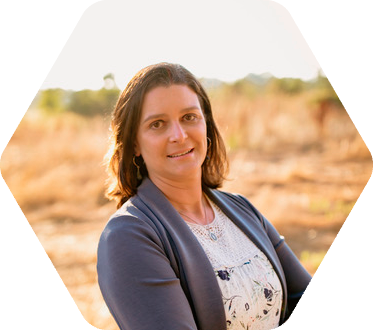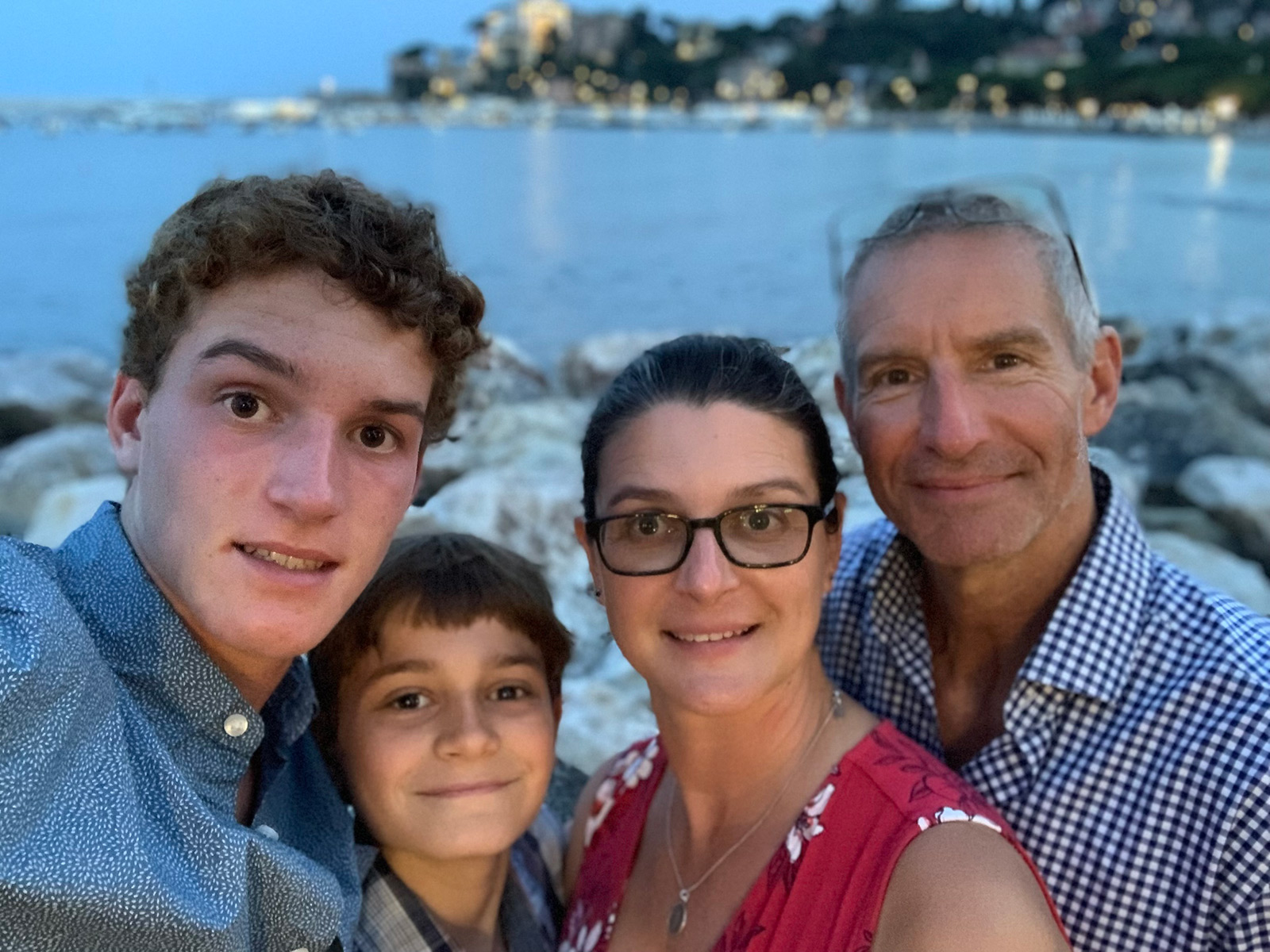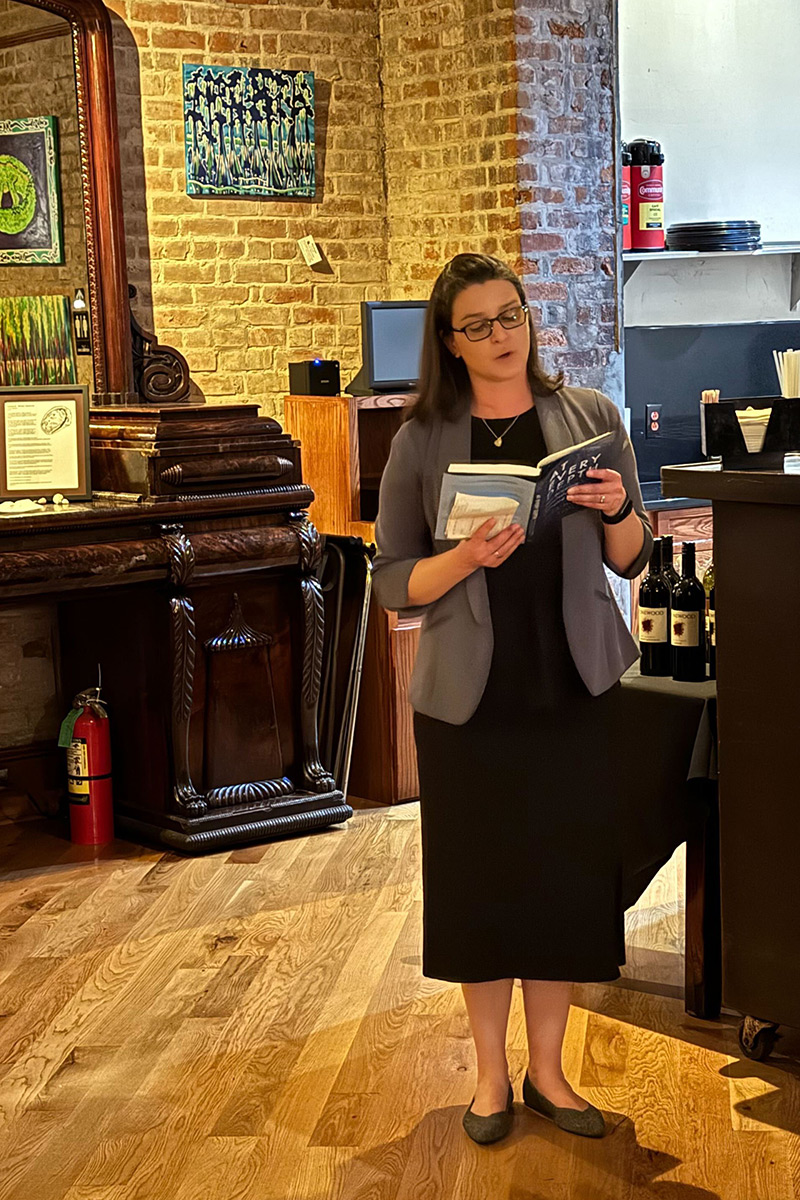Class of 1999
When Dr. Tessa Hill ’99 teaches freshman-level large lecture classes in marine science—courses where she knows not every student will end up a scientist, or even in the science field—she says she tries to imbue each person with an understanding of why the subject material matters to them.
“I want them to be thinking about the ocean when they vote, and when they open up the newspaper in the morning, and when they think about politics and life and society—I want the ocean to float to the surface in those thoughts,” she says.
She sees Eckerd as a starting point for that philosophy of big-picture thinking. Tessa is an oceanographer, policy-shaper and recently published book author who studies marine science on the other west coast. A professor and scientist at the University of California, Davis, Tessa serves as associate vice provost for Academic Programs in Public Scholarship & Engagement and was one of the faculty to shape the school’s marine science major when it began accepting students a decade ago.

Tessa’s path to Eckerd was an unusual one. As a high school junior in Tacoma, Wash., she made a long list of schools to visit, and then only visited one: Eckerd College. A program at the time allowed qualified students to skip their senior year of high school and enroll straight out of junior year, which she now says she can hardly believe her parents agreed to.
“I think my parents knew that I was ready for an adventure,” she says. “I was bored in high school, and nothing good comes of teenagers being bored.”
Being across the country from home at such a young age was not always easy, Tessa says. An immediate connection with her mentor, Professor Gregg Brooks, set the stage for the rest of her education and career and carried her through.
“I guess it’s not totally accurate to say I never looked back because I did do a little bit of looking back and wondering whether that was the right decision,” she says. “But through really great mentoring at Eckerd, I stuck with it, and it was absolutely the right decision for me for so many different reasons.”
In a research project she worked on with Professor Brooks, which eventually became her first publication, Tessa studied characteristics in marine sediments that identified where the barrier islands were through time. As part of that project, she wanted to study microfossils—tiny fossils that help reconstruct the past environment—but needed someone to teach her the research methods.
Professor Brooks connected her with Franco Medioli of Dalhousie University in Canada, one of the grandfathers in the field who just so happened to winter in St. Petersburg. It was an example of the doors mentoring opened, and would continue to open, to new mentors and connections. Those connections led directly to her Ph.D. at the University of California, Santa Barbara.
“I was 17, 18 years old, and people saw something in me that I didn’t see in myself,” she says. “People at Eckerd believe that their students can do amazing things.”
Mentoring remains important to Tessa, who continues to do research reconstructing past climates and environments, mostly on the California coast. She hosted Eckerd alumnus Brady O’Donnell ’15 in her lab while he pursued a master’s degree from UC Davis. Brady, in turn, recruited undergraduates Walker Calhoun ’18 and Jackie Bonfiglio ’18 to the lab as summer interns.
In addition to her research, Tessa prioritizes public advocacy and making marine science accessible to the general public. To that end, she wrote her recent book, At Every Depth, with science journalist and friend Eric Simons. They spoke to lifetime observers of the ocean—scientists, but also coastal community members, fishermen, and indigenous knowledge-holders—about how the ocean is changing and what the world is at risk of losing.
“He and I really set out to tell stories of how people are connected to the ocean and how we rekindle or strengthen that connection,” she says.
At UC Davis, Tessa says having a liberal arts background helps her every day. On a science policy and communication front, she is able to consider what people will value and what will resonate with them. As an administrator, she understands that her job is supporting not only her fellow faculty in the sciences, but the humanities and beyond.
“I use that broad base of interest — I don’t always feel knowledgeable, but I always feel interested,” she says.



